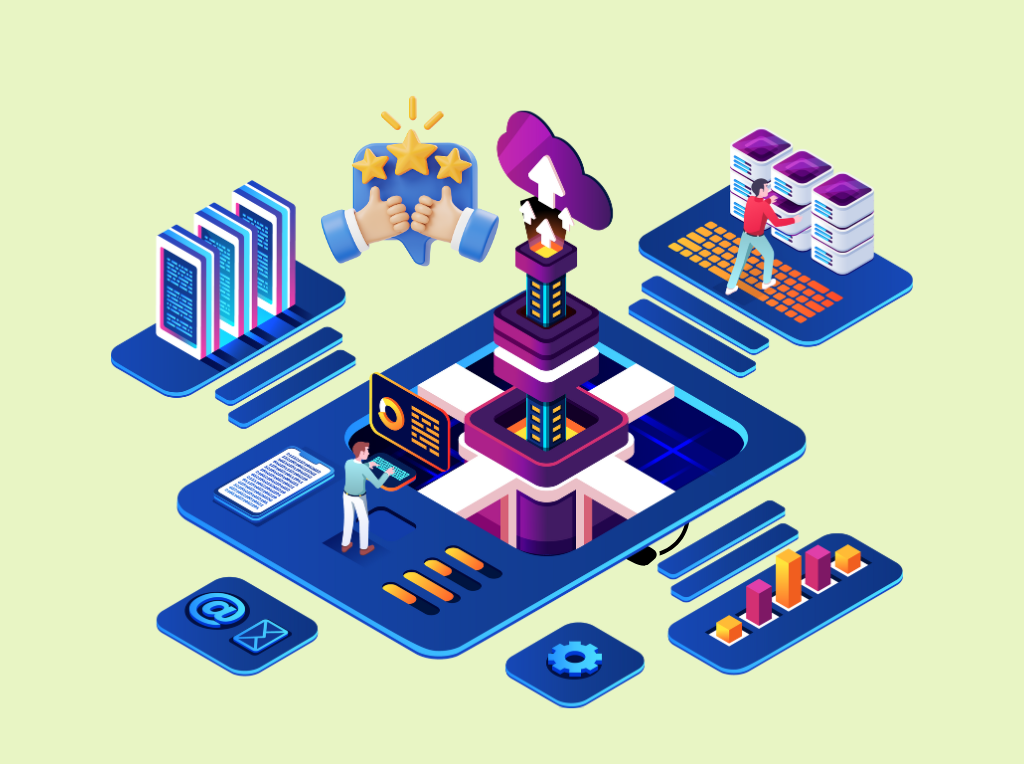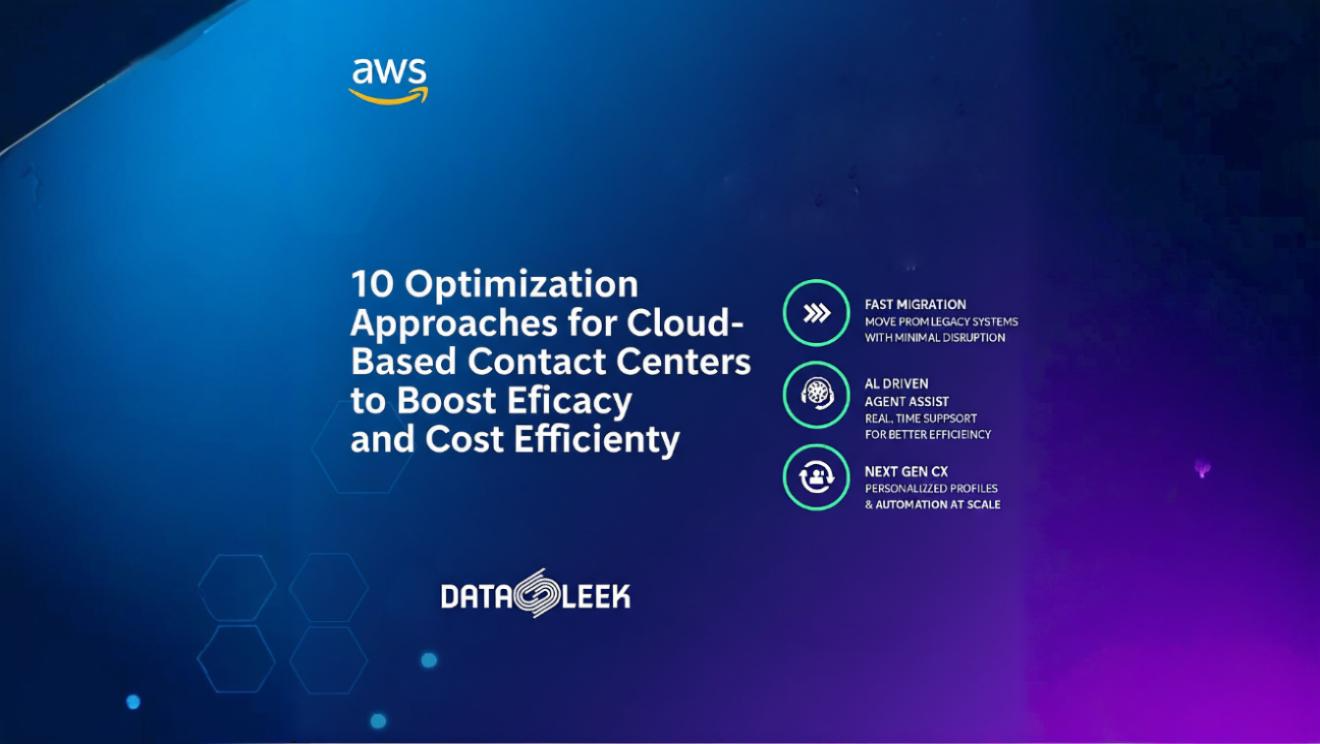The modern business landscape entails every aspect of the business to be customized and elevated. Contact Centers require enhanced quality and technical upgradation because they directly deal with the customers. It becomes more challenging when you have to delight modern-age customers who always run short of time.
Keeping Quality Assurance in contact centers devoid of AI will be imprudent. Traditional QA methods often struggle with accuracy and efficiency, which is imperative to stay competitive in the rapidly changing world. AI has permeated various sectors, enhancing tasks that require human-like intelligence and has significantly transformed the QA processes within contact centers.
The Role of AI in Quality Assurance
Artificial Intelligence’s impact on customer experience (CX) is profound. By leveraging the latest technology, contact centers can harness valuable data to improve efficiencies, redefine customer engagement, and gain insights that enhance quality management and the overall customer journey.
Embracing AI allows businesses to move beyond basic improvements and achieve substantial enhancements in both B2B and B2C interactions. However, implementing AI in QA requires an understanding of the challenges inherent in traditional methods.
Challenges of Traditional QA Methods
Contact centers manage numerous customer interactions daily through various channels such as live chats, emails, and phone calls. Manually reviewing each interaction is time-consuming and can lead to missed details or misunderstandings. A few potential challenges of Traditional QA Methods include –
1. Bias and Subjectivity
Customer interactions are often influenced by individual biases, which lead to skewed perceptions and evaluations. These biases may stem from cultural differences or personal opinions that compromise the reliability of feedback and assessments.
Evaluators may apply inconsistent standards when judging interactions, resulting in feedback that lacks alignment. This variability complicates the training and guidance of staff, making it difficult to ensure a uniform approach to customer service.
2. Time-Consuming Manual Processes
Contact centers manage a high volume of customer interactions daily through live chats, emails, or phone calls. Manually reviewing each interaction consumes significant time and resources. Relying solely on human evaluators for quality assurance can lead to critical oversights and significant gaps in quality assurance.
3. Challenges in Scaling Operations
As demand for customer support grows, contact centers struggle to keep pace with the increasing volume of interactions. Traditional quality assurance methods, which are often manual, get overwhelmed by this surge. Consequently, only a limited number of customer interactions receive a thorough evaluation, which leads agents to miss important insights.
How Integrating AI in Quality Assurance is Beneficial
Maintaining exceptional service quality is essential for driving customer satisfaction and loyalty. Integrating Artificial Intelligence (AI) into your Quality Assurance (QA) processes is a transformative step that can significantly enhance your operations. Here’s how AI can revolutionize QA and deliver amazing benefits to your contact center.
1. Consistency
One of the standout advantages of AI in quality assurance is its ability to deliver consistent evaluations. Unlike human evaluators, who may unintentionally introduce biases or subjective interpretations, AI operates on predefined criteria. This means every interaction—whether it’s a phone call, email, or chat—is assessed uniformly. By eliminating variability, you create a reliable quality assurance process that benefits both your agents and customers. Consistency helps set clear performance benchmarks, making it easier to identify areas for improvement.
2. Natural Language Processing (NLP)
Natural Language Processing (NLP) takes quality assurance to the next level by analyzing interactions beyond just words. It captures emotional nuances, identifies customer sentiment—be it positive, neutral, or negative—and highlights areas that need attention. For instance, NLP can detect when a customer is frustrated based on their tone or word choices. This proactive insight allows your team to address dissatisfaction before it escalates, enhancing the overall customer experience and providing valuable data to refine training programs and agent scripts.
3. Cloud-Based Solutions
Most modern AI-powered QA tools operate on cloud infrastructure, making them accessible, scalable, and cost-effective. This means you can say goodbye to expensive on-premises setups! Cloud-based platforms integrate seamlessly with your existing CRM and call center systems, allowing remote teams to access QA tools securely. This flexibility ensures operational continuity—even during disruptions like the shift to remote work we all experienced during the COVID-19 pandemic.
4. Scalability
AI-driven QA tools are designed to scale effortlessly with your contact center’s demands. Whether you’re facing seasonal spikes in customer inquiries or unexpected surges in call volume, these systems can handle varying interaction levels without sacrificing accuracy. They analyze interactions in real time, maintaining consistent evaluation quality even during peak times—a critical factor for keeping customers satisfied and loyal.
5. Enhanced Performance Monitoring
Imagine having the ability to evaluate agent interactions in real time! AI enhances performance monitoring by assessing tone, script adherence, and resolution effectiveness as calls happen. This immediate feedback creates a continuous improvement loop, empowering agents to make adjustments on the spot. For management, AI-generated reports provide insights into performance trends, enabling targeted interventions that boost individual or team performance.
6. Data-Driven Insights
With machine learning (ML) and NLP capabilities, AI can sift through vast datasets to generate actionable insights. It identifies patterns and trends in customer interactions—like recurring issues or popular topics—allowing you to proactively tackle systemic challenges. For example, if AI reveals a spike in specific product complaints during certain periods, you can implement preemptive measures to address these concerns before they escalate.
7. Automation of Repetitive Tasks
AI excels at automating time-consuming QA tasks such as categorizing calls, scoring interactions, and transcribing conversations. By offloading these repetitive activities from your QA teams, you allow them to focus on strategic initiatives like developing training modules or refining quality benchmarks. This not only boosts productivity but also enhances accuracy by minimizing human errors typically associated with manual processes.
Conclusion
Integrating AI into your quality assurance processes offers substantial benefits—improved compliance, deeper insights into customer behavior, and enhanced operational efficiency are just the beginning.
However, it’s important to remember that AI should complement human agents rather than replace them. Human evaluators remain essential for final assessments in QA processes. By blending the strengths of AI with human expertise, you can create a contact center that not only meets but exceeds customer expectations.




